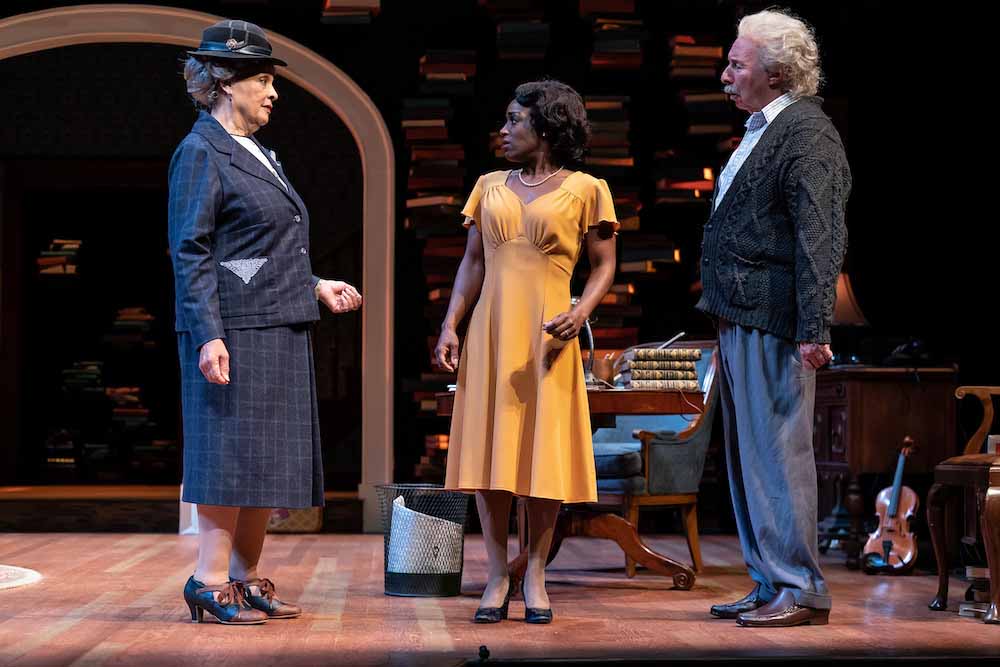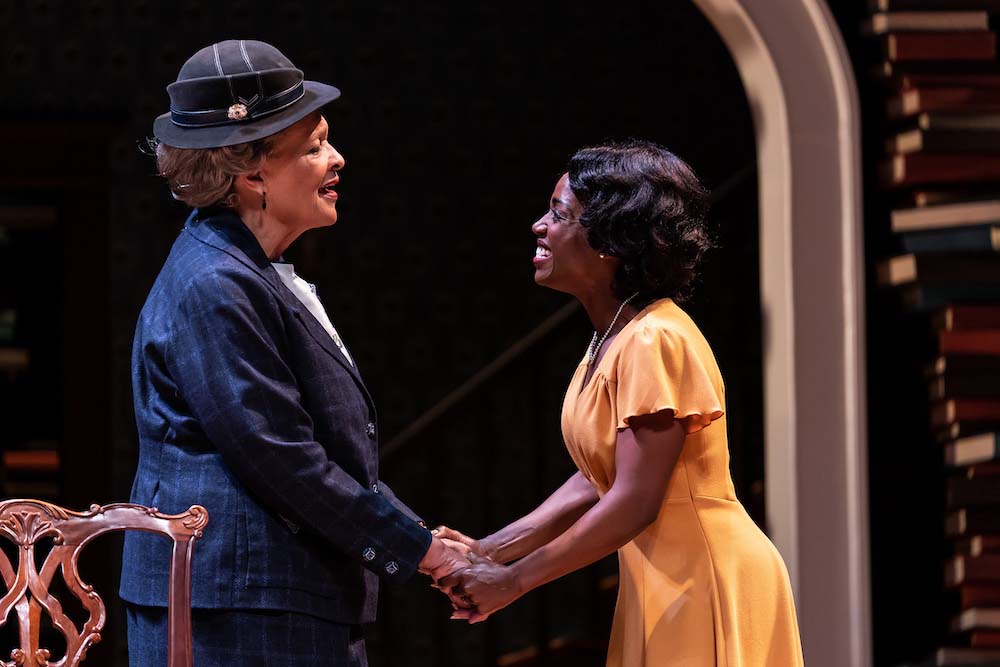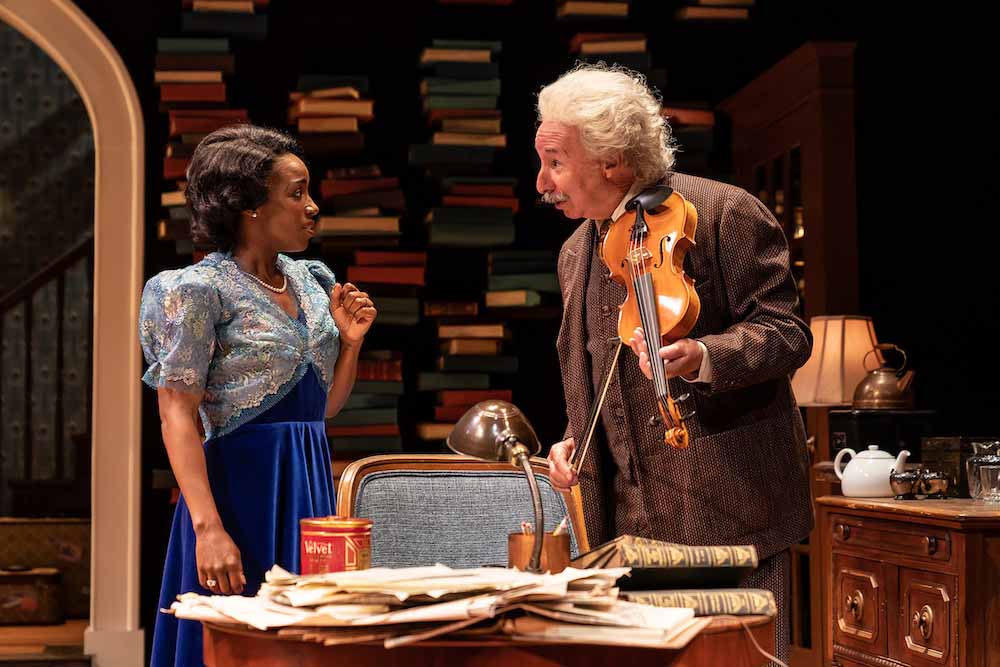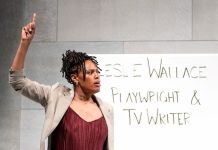“It’s all about protest,” said Felicia Curry, reflecting on the theme of My Lord, What a Night, the new play that just completed a run at Ford’s Theatre and is now streaming on-demand.
An award-winning actor, singer, and host of WETA Arts on PBS, Curry took time out of a busy schedule to tell me about the person she portrays: Marion Anderson, the great Black contralto whose voice—acclaimed as a “once in a century wonder” by Arturo Toscanini—was not enough to shield her from discrimination. Anderson’s path from acquiescence to active resistance is the core of the play.

For Curry, the production could not be more timely. Despite the fact that the events portrayed took place more than 80 years ago, the basic dilemma—how to respond to injustice—remains unchanged.
Yet the need to speak out is greater than ever. The effectiveness of the Black Lives Matter movement is a testament to the fact that silence, in the face of injustice, is never golden.
The play opens in 1937 when Anderson—following a sold-out concert in Princeton, New Jersey—is denied a room at the local inn.
Refusing to stay in the “colored” part of town, the elegantly gowned singer ends up at the home of Albert Einstein, the Nobel Prize–winning physicist. Einstein, a Jewish refugee from Nazi persecution, is played by a suitably scruffy (and deliciously self-mocking) Christopher Bloch.
Despite the disparity in age and background, the two bond instantly. But while both have suffered the cruelty of injustice, they disagree on what to do about it.
Anderson thinks her singing alone is a sufficient response to the problem. In this, she is supported by Abraham Flexner, head of Princeton University’s Institute of Advanced Study.
Although Flexner is the rescuer of many Jewish scholars, including Einstein, he is a firm believer in lying low. Flexner is played to wonderful effect by the redoubtable Michael Russotto, who swerves magically from fear to farce.
It is Einstein who manages to persuade Anderson to use her voice as an instrument for change. In this, he is backed up by Mary Church Terrell (played by an electrifying Franchelle Stewart Dorn), a formidable feminist and civil rights leader, who storms the bastions on every side.
(Imagine survivors of the Holocaust in league with those of Jim Crow and you get the idea.)
When I caught up with Curry between performances, she explained the basic format of the play. “It’s really a debate between four people, but they don’t align themselves by race or gender.”

The two white men—Einstein and Flexner—are at odds from the beginning, while the two Black women, despite looking up to each other, are opposites in both age and decorum.
“Yet they’re all experiencing discrimination,” Curry said. “And they’re all asking, ‘How do we fight this injustice, here and around the world, without making things worse?’ ”
Princeton University, Curry reminded me, had at the time one of the most rigid quotas in America, with strict limits on the number of Jewish students allowed. The quota was even tighter at the Institute. Flexner, who hired the Jewish scholars, is terrified that his funding will end. The reality, as he points out in a telling moment of the play, is that the owner of the whites-only hotel Princeton hotel—the place where Anderson was humiliated—is, in fact, a principal funder of the Institute.
In the play, all four are struggling with the issue of responsibility. Terrell and Einstein understand this from the very beginning; Anderson and Flexner take longer to get there.

Musing over the difference, Curry pointed out that Anderson, in real life as in the play, was not a fighter. Unlike Terrell, who was a suffragist as well as a staunch advocate for racial equality, Anderson was a shy woman who did not want to make waves. She is reluctant to raise her voice in protest and believes that her singing, alone, will break barriers.
When that doesn’t happen, she understands her responsibility to act and to use her gift as an instrument for change. “The suspense,” Curry said, “lies in seeing how she will get to that point.”
(Terrell, by the way, is a hero for audiences here in DC. In 1950, at the age of 86, she successfully fought—and ended—de facto segregation in Washington restaurants.)
Curry admited to being surprised by the deep friendship that existed between Anderson and Einstein. “After all,” she asked, “what could be more different than science and art?” The answer, she learned as she researched the play, is that their relationship was based on a profound respect for each other: “They loved music and hated intolerance.”
Although Curry never met Marian Anderson, she certainly knew a lot about her, growing up. “Marian was a role model for me from the time I was very young,” she said, describing a childhood in which she was singing at church at age three and on stage at the local theater—in Parsippany, New Jersey—by the time she was five. Music came naturally, since her father studied opera early in his career and the family often gathered around the piano at home.
Like her father, Curry studied opera too, at the University of Maryland. In fact, she told me that playing the lead in My Lord was a way of honoring her professor, the late Carmen Balthrop.

Although Curry majored in broadcast journalism, she discovered—after two internships—that she couldn’t stand TV news reporting. Fortunately, she had a minor in performing arts, and a strong background in community theater, which allowed her to begin working nights at Toby’s Dinner Theatre. Within a year, she was able to quit her day job and join the theater full-time.
That was in 2007. The late Joel Markowitz, DCMTA’s founder, described Curry at the time as “a powerhouse of talent, and one of the nicest actresses, singers and human beings I have had the privilege of knowing.” (Click here to read Joel’s story in the DC Theatre Scene archives.)
“Since then, it’s been nonstop,” Curry said. When the pandemic came along, she got through the crisis by doing a lot of film production, much of it at Everyman Theatre in Baltimore. Due to COVID’s impact on theater, filming is still a big chunk of her acting life.
My Lord, What a Night is no exception. The show was filmed live at two performances a few weeks ago, then edited into a single whole, allowing theater lovers who missed the show—or who saw it but were unable to make out every gesture or word—to stream it instead.
Even those who stream the play will have an opportunity to bask in the intricate detail of the beautiful 19th-century stage on which the drama unfolds.
“Ford’s Theatre is a perfect setting for this play,” said Curry. “I was deeply moved to be playing Marian Anderson—a woman whose life and career are bound up with Lincoln’s legacy—while looking at the very box where Lincoln himself was seated, looking down, in the moment before he was killed.”
Running Time: One hour 40 minutes with no intermission
My Lord, What a Night produced by Ford’s Theatre streams on-demand through November 4, 2021. To purchase streaming tickets ($16 per viewer, good until 11:59 p.m. the next day), call 888-616-0270 or go online.
SEE ALSO:
‘My Lord, What a Night’ becomes truly thrilling at Ford’s Theatre (review by Ramona Harper)




